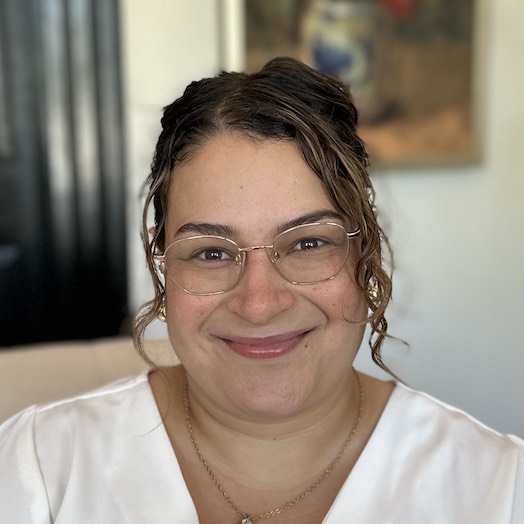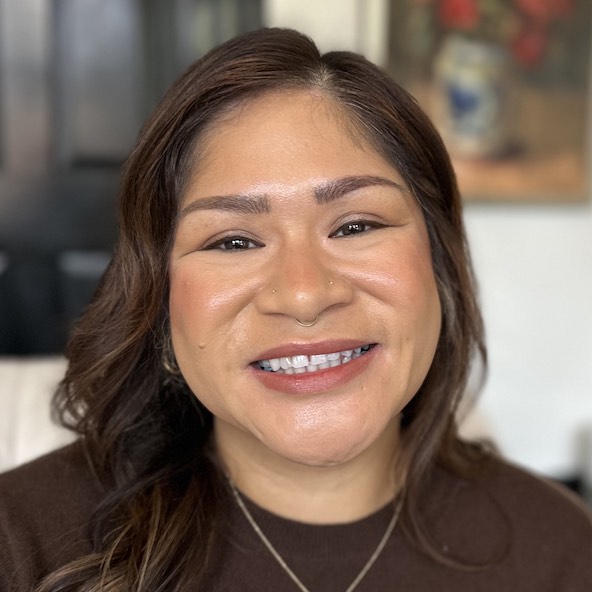
Does the idea of small talk with a stranger set your teeth on edge? When you go to parties, do you spend most of it in the kitchen petting the host’s dog (no judgment, the dog is great)? Do you get secretly excited when plans to go out get cancelled? If so, you might be an introvert… or you might have social anxiety. Or you might be an introvert who also has social anxiety. While these two experiences can look similar from the outside, they are distinctly different and understanding their differences can help you navigate your needs more effectively.
What Is Introversion?
Introversion is a personality trait that simply reflects how you recharge and where you focus your energy. If you’re introverted, you might feel energized by alone time or intimate settings with a few close friends rather than larger social gatherings. It doesn’t mean you dislike people or social interactions. It just means you tend to prefer environments that feel calm and less stimulating!
Your preference for quiet spaces and meaningful conversations may come from the way your brain processes stimuli. Introverts often experience greater sensitivity to external input, making overstimulating environments feel draining. This isn’t a sign of discomfort with others; it’s just how you’re naturally wired.
What Is Social Anxiety?
Social anxiety, on the other hand, is a mental health condition that involves an intense fear of being judged, embarrassed, or negatively evaluated by others. It’s one of the main types of anxiety disorder, and it impacts about 7.1% of American adults every year. If you experience social anxiety, social interactions might bring feelings of panic, self-doubt, or avoidance. This isn’t just a preference for quieter settings; it’s a persistent fear that disrupts your ability to engage comfortably in various situations.
Social anxiety often stems from a fear of being seen as awkward or unworthy, and these feelings can make even routine tasks like ordering food or speaking in a meeting feel overwhelming. Unlike introversion, which involves comfort in solitude, social anxiety revolves around fear and discomfort in social settings.
How Motivation Plays a Role
One way to understand the difference is by looking at your motivation in social scenarios. If you’re introverted, your desire to skip a party might come from wanting to conserve energy and enjoy your own company. With social anxiety, however, your avoidance could stem from worry about how others might perceive you. This distinction is important because it highlights the emotional root of the behavior. Introversion comes from a place of self-preference and care, while social anxiety is tied to fear and avoidance.
Behavioral Differences Between Introversion and Social Anxiety
While introverts may consciously choose solitude or smaller gatherings, social anxiety often results in avoidance that feels involuntary. For example, as an introvert, you might decline a large gathering because you genuinely prefer staying in. If social anxiety is at play, you might want to attend but feel paralyzed by worry about what others will think or how you might come across.
These differences also extend to how you feel during and after social interactions. Introverts may enjoy socializing but need time alone afterward to recharge. If you experience social anxiety, even a simple conversation might leave you replaying the interaction in your head, worrying about how you were perceived.
Impact on Relationships and Daily Life
Both introversion and social anxiety can influence your relationships and daily life, but they do so in different ways. If you’re introverted, you may naturally build deeper connections with a smaller circle of people, thriving in one-on-one or small-group settings. Social anxiety, however, might make you hesitant to engage even with close friends, leading to feelings of isolation despite wanting connection.
In your day-to-day life, introversion might guide your choices in activities or career paths toward those that involve independence or quieter environments. Social anxiety, on the other hand, could cause you to avoid opportunities entirely, holding back from experiences out of fear of judgment.
Emotional Responses to Social Situations
Your emotional response to social settings can also offer clues about whether you’re experiencing social anxiety or introversion. Introverts often enjoy socializing in the right circumstances and may feel content or neutral about their social preferences. Social anxiety, however, tends to involve heightened emotions like dread, worry, or even panic in anticipation of social encounters.
For instance, introverts might look forward to a small gathering with close friends but feel indifferent about skipping a big event. In contrast, social anxiety can cause you to worry for days before the event and overanalyze every moment afterward.
Can You Be Both Introverted and Socially Anxious?
Yes, it’s possible to experience both. If you’re introverted, you may enjoy alone time and prefer calm environments, but if social anxiety is present, these preferences might be amplified by fear or discomfort. Recognizing the overlap can help you understand when you’re acting out of preference versus when fear is driving your decisions.
If you identify with both introversion and social anxiety, it’s worth considering how each influences your experiences. Are you skipping events because you want solitude, or are you avoiding them due to worry about how you’ll be perceived? Answering these questions can clarify your needs and help you address them more effectively.
Overcoming the Challenges of Social Anxiety
Social anxiety can be addressed with the right tools and support. While it may feel overwhelming, small steps like challenging negative thoughts, practicing social skills in low-pressure settings, or seeking professional help can make a difference. Therapy, in particular, provides a safe space to explore the roots of your anxiety and develop strategies to manage it.
Unlike introversion, which isn’t something to “overcome,” social anxiety benefits from active efforts to reduce its impact. If you feel stuck in cycles of avoidance or fear, reaching out to a therapist can help you take meaningful steps toward greater ease and connection.
Embracing Your Personality
Understanding whether you’re introverted, socially anxious, or a mix of both can help you make choices that honor your authentic self. If you’re introverted, you might focus on finding ways to create balance, ensuring you get the alone time you need without isolating yourself. If social anxiety is part of your experience, you might work on gently expanding your comfort zone while seeking support when needed.
Recognizing the difference allows you to approach your needs with clarity and compassion. Both introversion and social anxiety shape your relationship with the world, but by understanding their influence, you can take steps to navigate social situations in ways that feel right for you.
Seeking Support for Social Anxiety
If you’re struggling to differentiate between introversion and social anxiety, or if social anxiety is interfering with your life, therapy can provide guidance. Working with a therapist can help you uncover patterns, challenge fears, and build confidence in social settings. You don’t have to navigate these challenges alone. If you’re ready to explore how therapy can support you, we can help. Here at Love Heal Grow, our therapy team is ready to help you better understand yourself and take steps toward greater comfort and connection. Reach out to schedule a session with a Love Heal Grow therapist today!

























